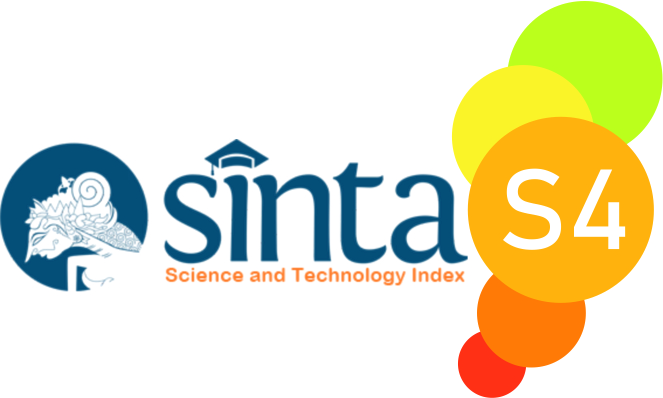Development of Soft Skills in Teaching English to Agriculture Students
Abstract
This study investigates the integration of soft skills within English learning experiences for English for Business Class participants, focusing on their relevance to future careers in agriculture. A narrative research design was employed in the study to delve into participants' English learning journeys and identify the most pertinent soft skills cultivated through learning activities. Semi-structured interviews are the primary data collection technique, allowing in-depth exploration of participants' experiences. Language appraisal and emotional geography analyses dissect the narratives and discern the most relevant soft skills for agricultural graduates. The analysis reveals many soft skills, including communication, problem-solving, decision-making, digital literacy, leadership, teamwork, critical and creative thinking, presentation skills, and reflection, all essential for navigating the complexities of agricultural work environments. These findings underscore the importance of integrating soft skills into English language learning curricula, particularly for students pursuing careers in agriculture. The study has implications for updating learning methodologies, refining teaching materials, and designing English learning activities tailored to the specific needs of agricultural professionals
References
Ansarey, D. (2016). A Study on English Teaching Standard in Four Agricultural Universities in Bangladesh. The Agriculturists, 14(1), 142–150. https://doi.org/10.3329/agric.v14i1.29259
Bajjaly, S., & Saunders, L. (2023). Teaching Soft Skills Competencies in US Social Work Programs. Journal of Teaching in Social Work, 43(2), 193–210. https://doi.org/10.1080/08841233.2023.2176403
Bennell, P., & Akyeampong, K. (2007). Teacher Motivation in Sub-Saharan Africa and South Asia. Department of International Development.
Charmaz, K. (2006). Constructing Grounded Theory: A Practical Guide through Qualitative Analysis. Sage Publications.
Choi, H. J., & Johnson, S. D. (2005). The Effect of Context-Based Video Instruction on Learning and Motivation in Online Courses. International Journal of Phytoremediation, 21(1), 215–227. https://doi.org/10.1207/s15389286ajde1904_3
Cimatti, B. (2016). Definition, Development, Assessment of Soft Skills and Their Role for The Quality of Organizations and Enterprises. International Journal for Quality Research, 10(1), 97–130. https://doi.org/http://dx.doi.org/10.18421/IJQR10.01-05
Clandinin, D. J. & Connelly, M. (2000). Narrative Inquiry: Experience and Story in Qualitative Research. San Francisco, CA: Jossey-Bass
Clandinin, D. J., & Huber, J. (2010). Narrative Inquiry. International Encyclopedia of Education, 436–441. https://doi.org/10.1016/b978-0-08-044894-7.01387-7
Contreras, C. A., & Moore, P. J. (2022). The Role of English Language in The Field of Agriculture: A Needs Analysis. English for Specific Purposes, 65, 95–106. https://doi.org/10.1016/j.esp.2021.09.002
Deardoff, D. (2019). Story Circles: Intercultural Competencies Development Tool. Manual for Developing Intercultural Competencies, 13–68.
Hartl, M. (2009). Technical and vocational education and training ( TVET ) and skills development for poverty reduction – do rural women benefit ? http://fao-ilo.org/fileadmin/user_upload/fao_ilo/pdf/Papers/25_March/Hartl-formatted_01.pdf
Hopkins, D., Porter, B., Perdomo, M., & Munoz, L. (2012). Insights from UNCDF's YouthStart programme. Policy opportunities and constraints to access youth financial services. https://www.marketlinks.org/sites/default/files/resource/files/AccesstoYFS_FINAL.pdf
Martin, J. R., & White, P. R. R. (2005). Enacting Appraisal: Text Analysis. In The Language of Evaluation (pp. 210–211). Palgrave Macmillan. https://doi.org/https://doi.org/10.1057/9780230511910_5
Matteson, M. L., Anderson, L., & Boyden, C. (2016). "Soft Skills": A Phrase in Search of Meaning. Portal: Libraries and the Academy, 16(1), 71–88. https://doi.org/https://doi.org/10.1353/pla.2016.0009
McGregor, A., Tora, L., Bamford, G. & McGregor, K. (2011). The Tutu Rural Training Centre: lessons in non-formal adult education for self-employed in agriculture. Tutu Rural Training Centre.
Nghia, T. L. H. (2019). Building Soft Skills for Employability: Challenges and Practices in Vietnam (1st ed.). Routledge. https://doi.org/https://doi.org/10.4324/9780429276491
Octaviana, D. W. (2021). the Importance of Strategic Competence in Supporting Students' Speaking Performance. Journey: Journal of English Language and Pedagogy, 4(2), 51–61. https://doi.org/10.33503/journey.v4i2.1387
Quayle, A. F., & Sonn, C. C. (2019). Amplifying the Voices of Indigenous Elders through Community Arts and Narrative Inquiry: Stories of Oppression, Psychosocial Suffering, and Survival. American Journal of Community Psychology, 64(1–2), 46–58. https://doi.org/10.1002/ajcp.12367
Widodo, H. P. (2014). Methodological Considerations in Interview Data Transcription. International Journal of Innovation in English Language, 3(1), 102–107. https://www.proquest.com/scholarly-journals/methodological-considerations-interview-data/docview/1625463330/se-2
Yuliani, N. D., Najmiah, L., Hamdani, B., & Pratolo, B. W. (2023). EFL Students' Attitude Toward English Language Learning. Journey: Journal of English Language and Pedagogy, 6(1), 82–91. https://doi.org/10.33503/journey.v6i1.2590
Copyright (c) 2024 Hafida Ruminar

This work is licensed under a Creative Commons Attribution-ShareAlike 4.0 International License.

Journey: Journal of English Language and Pedagogy by http://ejurnal.budiutomomalang.ac.id/index.php/journey/index is licensed under a Creative Commons Attribution-ShareAlike 4.0 International License.






